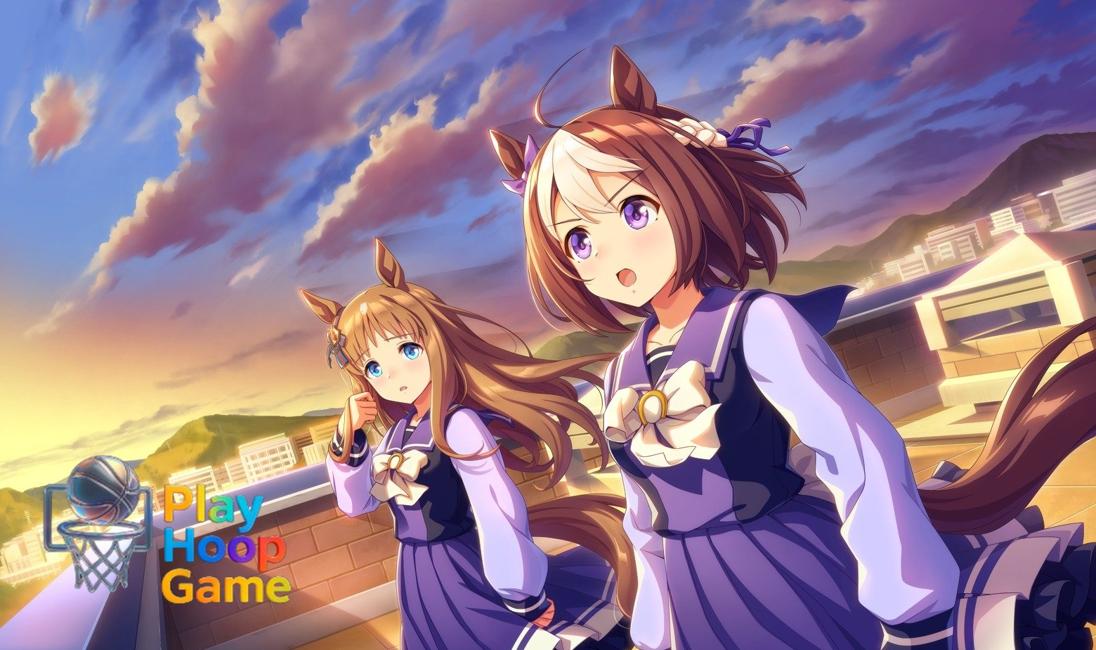There are some things on the internet that, on paper, should absolutely not work. They defy logic. They defy taste. They should, by all accounts, be a forgotten fever dream on a dusty corner of a forgotten forum.
And yet.
Umamusume: Pretty Derby is one of those things. The premise is, and I say this with all the love in my heart, completely bonkers. You take legendary, real-world Japanese racehorses—we’re talking titans of the turf—and you reincarnate them as... anime girls. These "horse girls" have the ears and tails of their equine counterparts, and they compete in races, but they also train to become pop idols. They run on a track, and then they sing and dance on a stage. It’s a gacha game, a sports story, and an idol simulator all rolled into one impossibly compelling package.
I know, I know. It sounds like a Mad Libs gone wrong. But here’s the thing: it’s brilliant. The developer, Cygames, treats the source material with a startling reverence. The stories of these horse girls mirror the real-life triumphs and tragedies of the horses they’re based on. And because of that, the game has fostered one of the most passionate, knowledgeable, and genuinely wholesome fanbases I have ever seen. A fanbase that loves the game, sure, but has also developed a profound appreciation for the actual, four-legged sports legends that inspired it all.
Which is how we get to our story. A story about love, loss, good intentions, and the chaotic mess that happens when digital enthusiasm crashes headfirst into analog reality.
A Heartfelt Idea Spirals Out of Control
In May of 2023, the Japanese horse racing community lost a beloved horse named Top Road. He wasn’t the most famous horse in the game’s roster, but he had a story. A classic underdog tale. He was known for his gutsy performances, often finishing just shy of the top spot in major races, which only made his eventual victories all the sweeter. He was a trier. A fan favorite. And after a long and successful career as a stallion, he passed away.
The news hit the Umamusume community hard. For them, Top Road wasn't just a name in a pedigree chart; he was a character they had trained, raced, and bonded with. They felt a real connection. So, they wanted to do something. They wanted to pay tribute.
This is where the good intentions come in. A popular Japanese streamer who covers the game decided to hold a memorial livestream. The idea was to raise money through YouTube's "Super Chat" feature—you know, where viewers can pay to have their message highlighted in the chat—and donate the proceeds to an organization that cares for retired racehorses. A noble goal, right? A perfect way for a digital community to give back to the real-world animals that inspired their passion.
What could possibly go wrong?
Well, just about everything.
Why Umamusume Fans Tried To Pay Tribute But It Didn’t Go As Planned
The first crack in the plan appeared almost immediately. The streamer raised a substantial amount of money. A really impressive sum, something like ¥2.1 million, which is over $15,000. The fans had shown up in force, opening their digital wallets to honor Top Road.
But then came the "how." How do you get that money from YouTube, through a streamer's personal account, and into the coffers of a registered non-profit in a way that’s transparent, legal, and officially recognized? This isn't just sending a check. It's a logistical and bureaucratic nightmare. The streamer, bless his heart, seemed to realize this mid-stream. The plan, which started as a beautiful, simple gesture, suddenly became a tricky trip through tax laws, platform fees, and the official regulations of charitable donations in Japan.
And it gets more complicated. The world of Japanese horse racing is… let's call it traditional. It's an old institution with deeply entrenched rules and a very specific sense of decorum. The Japan Racing Association (JRA) and associated retirement organizations aren't really set up to handle a massive, impromptu cash donation from a YouTuber that was generated by fans of a game about anime horse girls. The optics are weird, the paper trail is a mess, and it sets a precedent they likely don’t want to deal with.
The whole thing kind of imploded. The streamer, caught between a rock and a hard place, ended up having to refund all the donations. The grand tribute, the outpouring of community love, fizzled into a series of apologies and logistical explanations. It was a mess. A well-intentioned, heartbreaking mess.
More Than a Mishap: A Lesson in Modern Fandom
It’s easy to laugh at this. And I'll admit, there's a certain tragic comedy to the whole affair. But I keep coming back to the why. Why did this happen?
Because this story is a perfect microcosm of 21st-century fandom. We live in a world where the line between the digital and the physical is blurrier than ever. We form real emotional bonds with fictional characters, which in this case, are themselves based on real entities. It’s a strange and fascinating parasocial relationship that spans multiple layers of reality. It's a wild adventure in media consumption.
The fans' impulse was pure. They felt a loss, and their first instinct, as a digital-native community, was to use the tools they had at hand: livestreaming and online payments. It’s the modern equivalent of passing a hat around. But the real world, with its boring-but-necessary systems of banks, taxes, and regulations, hasn’t quite caught up to the speed and spontaneity of internet culture.
What the Umamusume fans learned the hard way is that goodwill isn't always enough. Passion needs a plan. Enthusiasm needs a practical roadmap. Their tribute didn't fail because they didn't care enough; it failed because they cared so much they leaped before they looked, powered by a collective energy that the analog world simply wasn't equipped to handle.
And honestly? There's something beautiful and deeply human in that, even in the failure. It's a reminder that the strongest communities are the ones that inspire you to try to do something good, even if you stumble along the way.
Answering Your Questions About the Umamusume Tribute Incident
So, what exactly is Umamusume: Pretty Derby?
Think of it as a hybrid. It's primarily a mobile game (and anime series) where you train "horse girls"—reincarnations of famous Japanese racehorses—to win races. But it's also an "idol" game, so a big part of their training involves practicing singing and dancing for post-race concerts. It's a strange but wildly popular mix of sports simulation and rhythm game with a heavy dose of heartfelt storytelling.
Why couldn't the fans just donate the money directly?
That was the core problem! Many did, and many do, make individual donations. The issue here was the centralized effort. The streamer was collecting money on behalf of thousands of people. This turns a simple donation into a complex financial transaction. He wasn't a registered charity, so he couldn't just collect millions of yen and hand it over. It raises legal and tax questions for everyone involved, especially the receiving organization.
Was the streamer trying to scam people?
Absolutely not. All evidence suggests the streamer had completely pure intentions. He was a fan, just like everyone else, who wanted to do something positive for the community and the memory of the horse. He was simply unprepared for the bureaucratic reality of handling such a large, crowdfunded sum of money. The eventual decision to refund everyone was the responsible, albeit disappointing, choice.
Does this mean Umamusume fans tried to pay tribute to a recently deceased racehorse but failed completely?
Logistically, yes, this specific plan didn't work out. The money was returned. But in spirit? I'd say no. The event, messy as it was, showed the world the depth of passion this fanbase has. It raised a huge amount of awareness for horse retirement charities and likely prompted many fans to donate individually through proper channels. So while the big, central tribute didn't go as planned, the underlying goal of honoring Top Road definitely succeeded in its own way.
What's the relationship between the game and real horse racing like now?
It's actually stronger than ever, but with clear boundaries. The game has driven a massive surge of new, younger fans to actual horse racing in Japan. The JRA acknowledges its impact. However, incidents like this have probably reinforced the need for a "wall" between the fan-led digital activities and the official, real-world operations. They coexist and often complement each other, but they are two separate worlds.

























